Myanmar Civil War Fighters Intensify Ethnic Conflict in Manipur
The ethnic conflict in Manipur is intensifying due to fighters from Myanmar’s civil war re-entering the region, escalating violence between the Meitei and Kuki communities. Armed groups are acquiring advanced weapons, leading to increased military deployments and rising crime driven by illicit activities. The situation worsened following a court ruling affecting government benefits, highlighting the area’s historical insurgencies and complex border dynamics.
The ongoing civil war in Myanmar has increasingly aggravated the deep-seated ethnic tensions in Manipur, India, particularly between the Meitei and Kuki communities. Armed groups returning from Myanmar have escalated the conflict, which has persisted for 19 months, leading to heightened violence with incidents such as the tragic death of 20 individuals in November alone. Reports indicate that both communities are acquiring advanced weaponry across the border, necessitating a substantial increase in Indian troop deployments to restore stability in the region. Currently, nearly 67,000 soldiers and an additional 30,000 police personnel are stationed in Manipur amid rising criminal activities connected with the conflict, including extortion and illegal drug trafficking.
The violence in Manipur can be traced back to a court ruling that aimed to extend government benefits to the economically disadvantaged Kuki community, similarly to those received by the Meiteis, who predominantly occupy the fertile Imphal valley. This ruling has intensified the conflict, prompting the Indian military and police to establish buffer zones in an attempt to mitigate violence. With a historical inclination towards insurgency, many militants have found refuge across the porous border, further complicating the situation.
The Kukis reportedly receive assistance from the Kachin rebels and have been acquiring firearms from Myanmar’s semi-autonomous regions. Concurrently, certain Meitei groups had collaborated with the Myanmar military, who now infiltrate back into Manipur, escalating the unrest. The Indian military and law enforcement have recorded over 100 Meitei insurgents returning or being apprehended within the last year, while about 50 Kuki insurgents have been arrested in parallel efforts.
Compounding the turmoil, authorities note that more than 1,500 illegal arms are presently estimated within the Meitei-controlled valley, and about 2,000 in Kuki-dominant areas. The various factions have accessed sophisticated weaponry from Myanmar, including military-grade firearms such as rocket launchers and assault rifles. “These are two distinct conflicts, one for freedom from military rule and another an internal ethnic conflict largely inflicted by one side on another,” stated Gautam Mukhopadhaya, reflecting on the intersectionality of these tensions.
Finally, the reported funding for arms and insurgent operations has also derived from illegal poppy cultivation, which remains an open question as to who finances these efforts since laborers from various communities are reportedly employed under armed guard. This complex entanglement of regional conflict, weapon influx, and illicit funding poses dire challenges for maintaining peace and stability in the northeastern Indian state.
Manipur, a northeastern state in India, has faced ongoing ethnic tensions between the Meitei and Kuki communities, exacerbated by the civil war in neighboring Myanmar. The underlying discord intensified following a court ruling that aimed to provide equal government benefits to both groups. Historically, the region has experienced insurgencies, with militants often seeking refuge in the porous border with Myanmar, complicating local security dynamics. The continuing conflict has drawn armed groups back into Manipur, resulting in an increase in violence and illicit activities, including drug trafficking and extortion, necessitating a military response.
The resurgence of armed conflict in Manipur is closely linked to the ongoing civil war in Myanmar, resulting in escalated violence and ethnic tensions between the Meitei and Kuki communities. With both sides acquiring advanced weaponry and an increase in criminal activity to fund their operations, the situation remains critical. The Indian government’s deployment of additional troops reflects the urgent need to restore order and address the complex issues that underpin this conflict, including historical grievances and external influences.
Original Source: m.economictimes.com
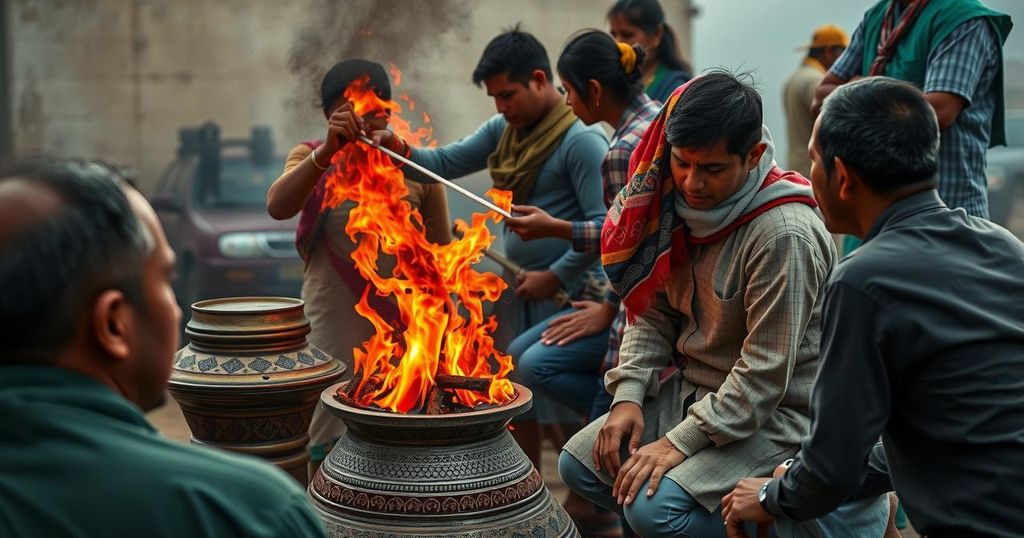
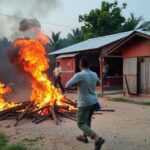
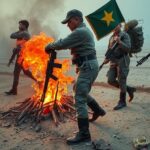


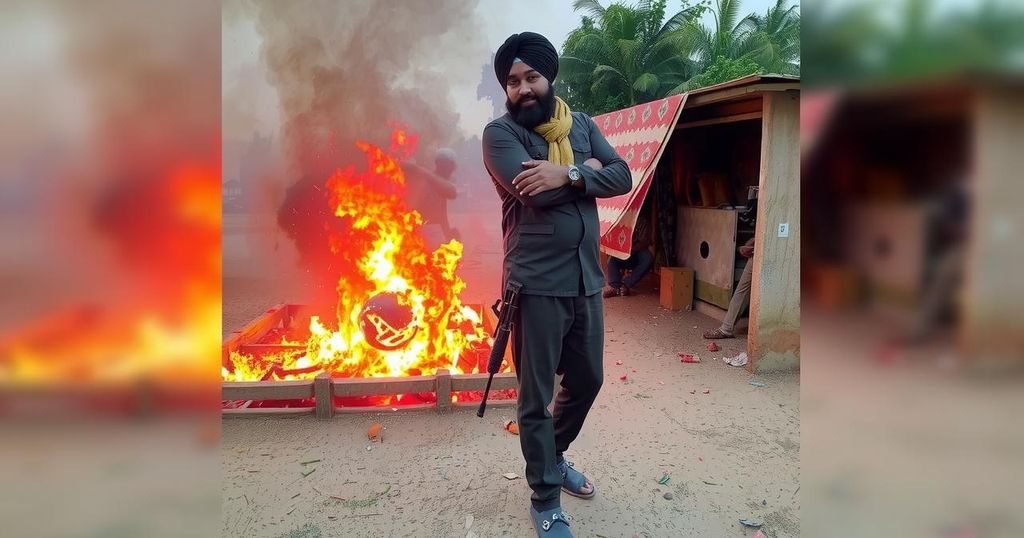
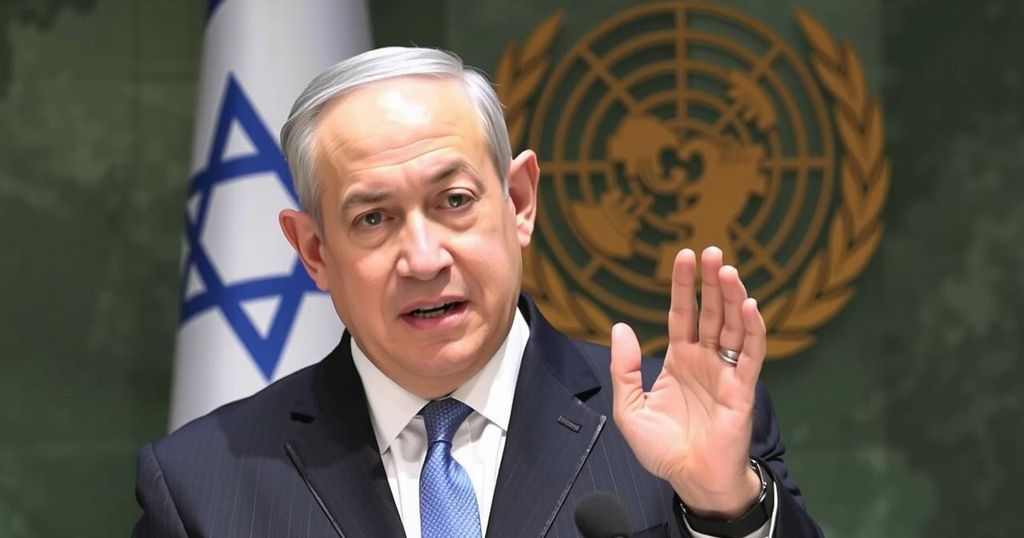
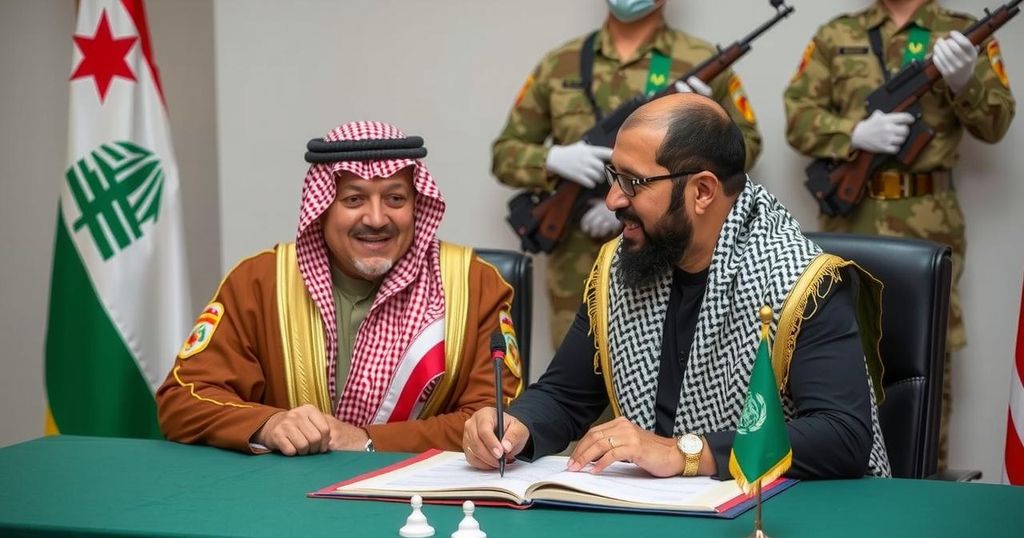
Post Comment